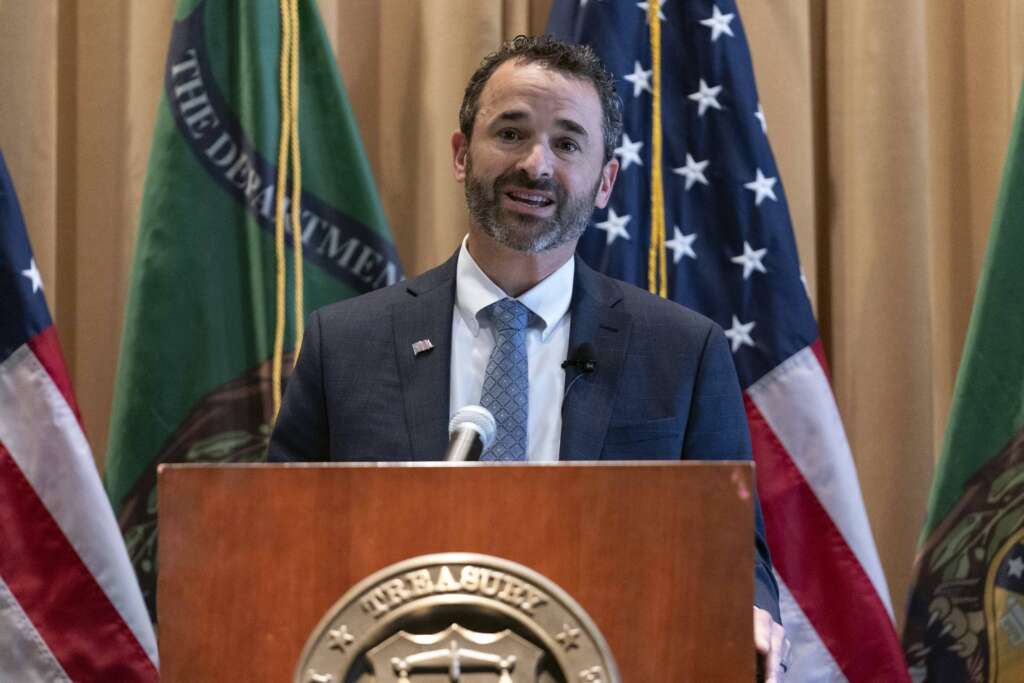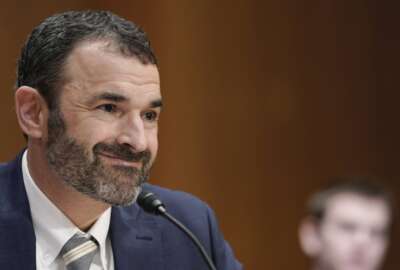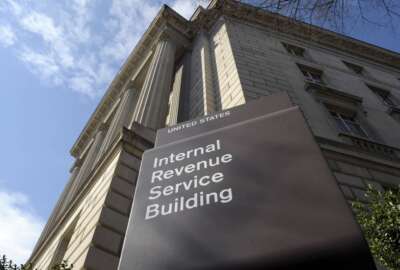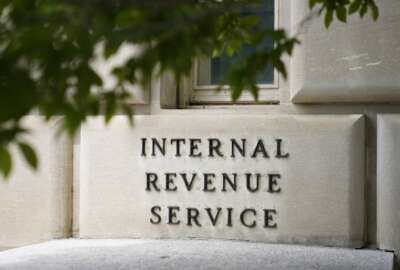IRS ends decades’ old policy to combat safety concerns, scammers
The IRS has ended its policy of revenue officers conducting unannounced home or business visits to address taxpayer debts.
In the four months since his Senate confirmation, IRS Commissioner Danny Werfel has been on a listening tour.
Werfel has been talking to employees, the union representing employees, citizens and anyone else who will talk to him.
One of the constant challenges he heard was around the safety of IRS revenue officers and agents who were conducting unannounced home visits, and the ever-growing concern from citizens about scam artists posing as tax agency officials.

“I’m in the early stages of my term at the IRS, and what I’m hearing from employees is a concern that they have shared over what say the last five or 10 years, the dynamic has changed to be very different for when you knock on someone’s door or ring their doorbell. I don’t know that that’s unique or specific to the IRS, but knocking on someone’s door today is a different scenario than it was 10 or 15 years ago. And there have been significant reports from IRS employees of home visits where they have felt unsafe,” Werfel said during a call with reporters today. “We’ve also heard concerns from taxpayers because we have been articulating over and over again the importance of being on the lookout for individuals posing as IRS employees. The result was a lot of confusion. This policy change will go a long way in resolving that confusion.”
That aforementioned policy change kicks off today. The IRS no longer will conduct unannounced home visits, except for rare occasions when they are absolutely necessary.
Werfel said this reverses decades’ old policy where IRS revenue officers, who are unarmed agency employees, would visit households and businesses to help taxpayers resolve their account balances by collecting unpaid taxes and unfiled tax returns. He said revenue officers make hundreds of these visits a year, but didn’t have an exact number.
More time, better prepared
Instead, the IRS says revenue officers will send letters through the Postal Service to schedule meetings or use secure electronic communications through the IRS website.
“If you go back decades, there was just an established practice of the IRS determining that the most effective way to collect these tax debts would be for a revenue officer to go to a home, if it’s a substantial tax debt. There was a determination that this was the most effective way to ensure that the individual who owed the money understood that the IRS was on top of it, and they should be motivated to pay,” he said. “But times have changed. We are just as intent on making sure that these old debts are collected. But in 2023, and moving forward, we believe there’s a better way to do it when you account for all the other issues that are at play in the United States today.”
If an IRS revenue officer comes to a citizen’s house or business unannounced, the agency says it’s likely a scam. The agency’s new process to collect outstanding debts will be outlined on its website.
By turning to the Postal Service, as well as more modern communications technology, Werfel said about 2,300 revenue officers will have more time to focus on the bigger cases and give citizens and businesses more time to prepare for the meeting.
“Taxpayers whose cases are assigned to a revenue officer will now be able to schedule face-to-face meetings at a set place and time. They will have the necessary information and documents in hand to reach resolution of their cases more quickly. Here’s another advantage of this decision for the taxpayer. It will help eliminate the burden of multiple future meetings,” he said. “Under the old policy, the IRS typically assigned about 100,000 cases to revenue officers each year. While we don’t have the specific number of unannounced visits that occurred, it was a routine part of the employee’s job to take this step. I also want to note that IRS auditors, our revenue agents, do not make these kinds of unannounced visits. This means that today’s announcement will bring all of our civil side employees into policy alignment on visits.”
The IRS’ decision to end unannounced visits received full support from the National Treasury Employees Union.
NTEU President Tony Reardon said in a press release this is an important step to keep IRS employees safe.
“The safety of IRS employees is of paramount importance and this decision will help protect those whose jobs have only grown more dangerous in recent years because of false, inflammatory rhetoric about the agency and its workforce,” Reardon said. “We applaud Commissioner Werfel’s quick action after hearing the safety concerns raised by NTEU leaders and IRS field collection employees who faced dangerous situations that put their safety at risk. We look forward to working with the IRS on this and other actions to protect the safety of all IRS employees.”
Leaning into better data, analytics
Werfel said the change in policy is part of how the IRS is using funding received through the Inflation Reduction Act (IRA) to modernize its processes and technologies.
He said the agency has been reviewing all of its processes and procedures to determine how it can continue to evolve, particularly in how the IRS uses data science and analytics.
“The better we can do at using data, the more we can focus our resources on individuals and organizations that are evading taxes versus engaging with honest taxpayers. We want more and more, in an increasing way when we look into a tax issue, to have greater and greater confidence that we have a really good reason to look into it because the data is pointing to a real issue,” he said. “The better the data, the better our analytics, the more accurate we’re going to be, and therefore, the more often when we’re reaching out to a taxpayer and reaching out to one that is in a significant tax issue versus an honest taxpayer. A key part of modernizing the IRS is improving the way in which we are leveraging data to do our jobs better, and that will benefit taxpayers. It will mean that honest taxpayers won’t hear from us, and it means that tax evaders will hear from us more often, and data can be a huge tool in that effort.”
Another piece to both the IRS’ modernization effort, as well as ending unannounced visits is the continued addition of new tools to its website or the creation of mobile apps and the hiring of more customer service representatives through the IRA.
Werfel said these changes are part of how the IRS is trying to meet one of the fundamental goals of the Taxpayer Bill of Rights, which is to provide taxpayers access and an avenue to resolve their issues quickly and completely.
“We have to do this across a variety of different channels. We have to improve our electronic means by which taxpayers access us. We have to open more walking centers and keep longer hours and have Saturday hours for people who can’t make it during the week. We have to hire revenue officers and train them on methods for improving the way in which we work with taxpayers so that we are focusing on the debts that are owed,” he said. “All of this with more modernization and more improvement and IRS operations will work to the benefit of all taxpayers.”
Copyright © 2025 Federal News Network. All rights reserved. This website is not intended for users located within the European Economic Area.
Jason Miller is executive editor of Federal News Network and directs news coverage on the people, policy and programs of the federal government.
Follow @jmillerWFED







